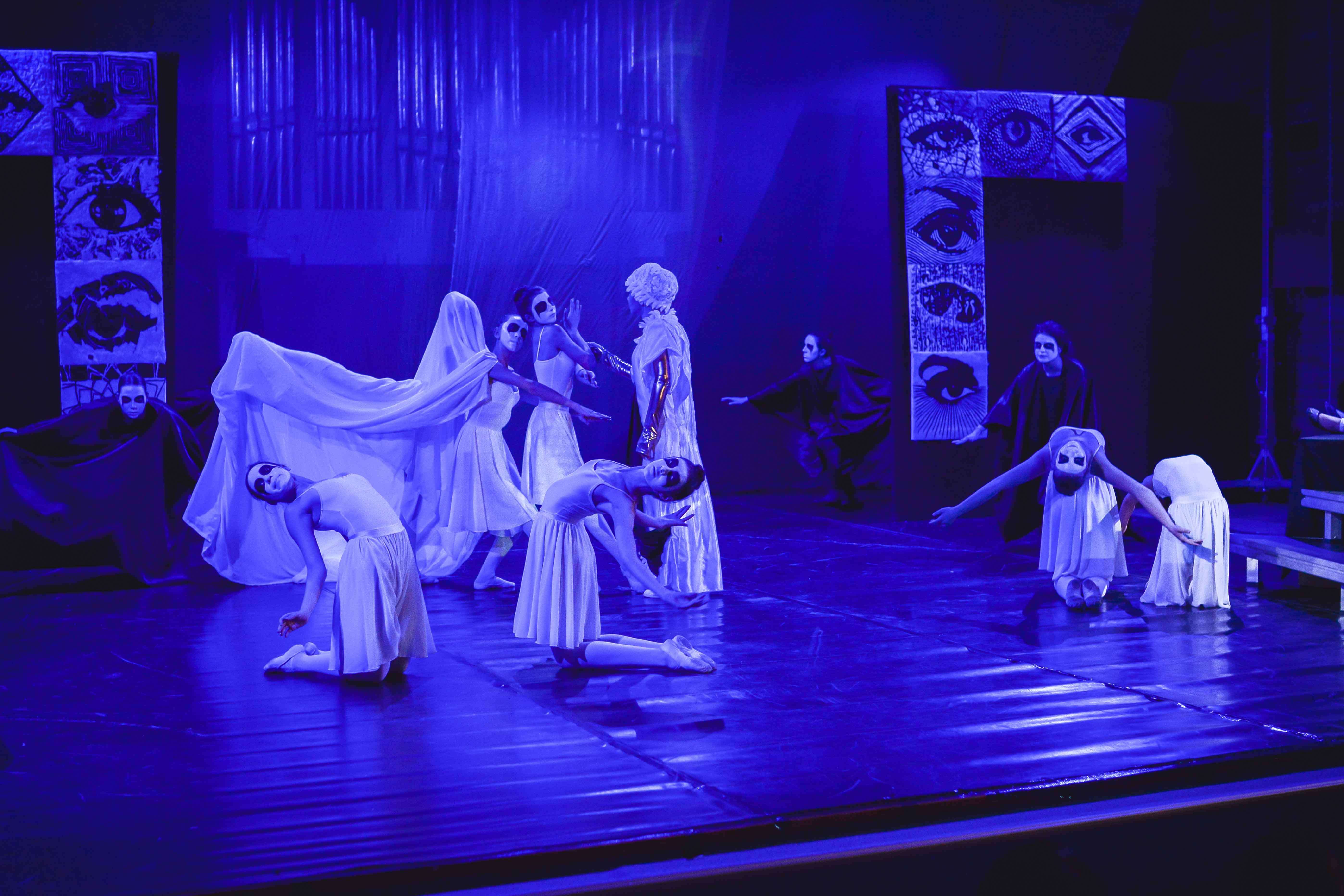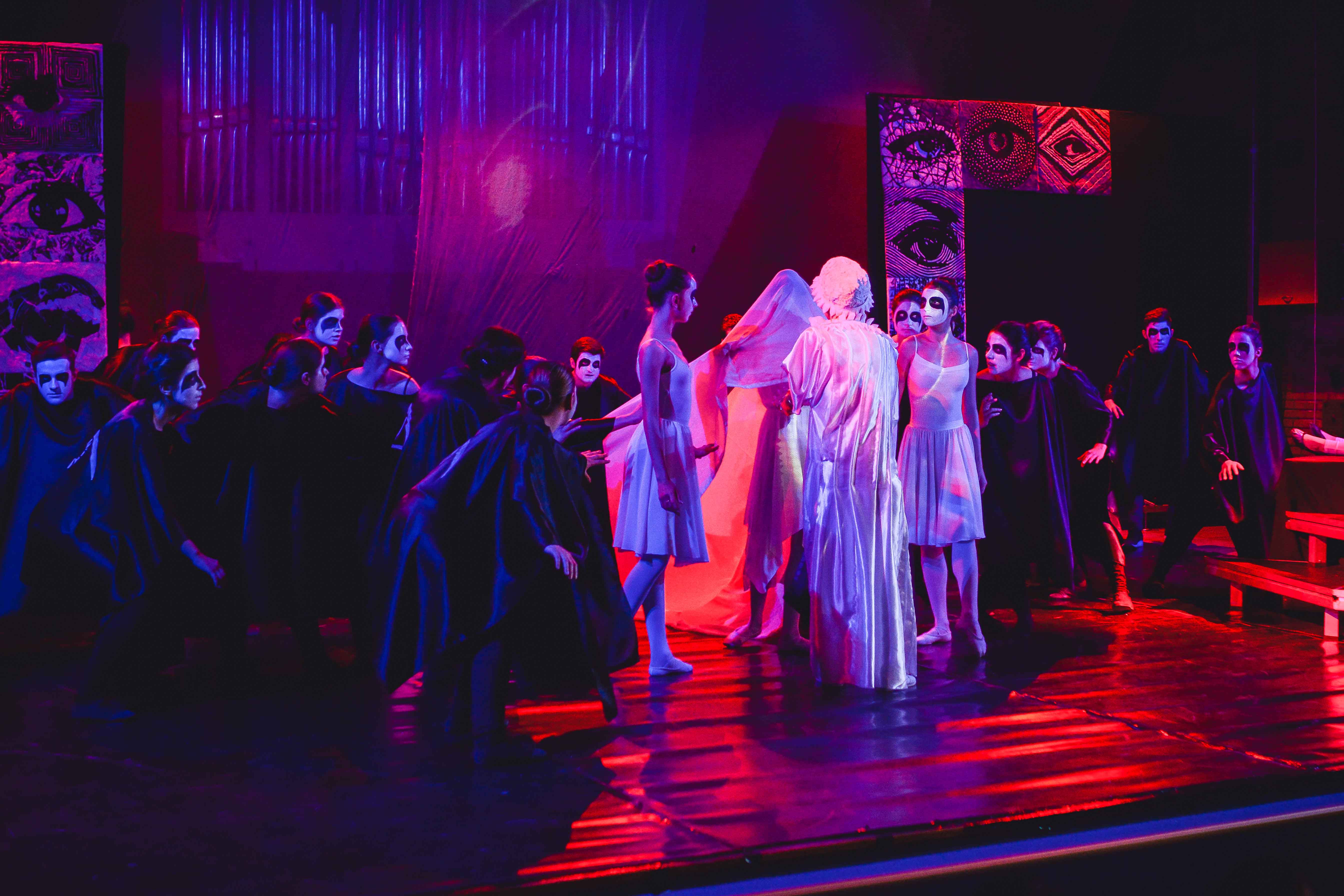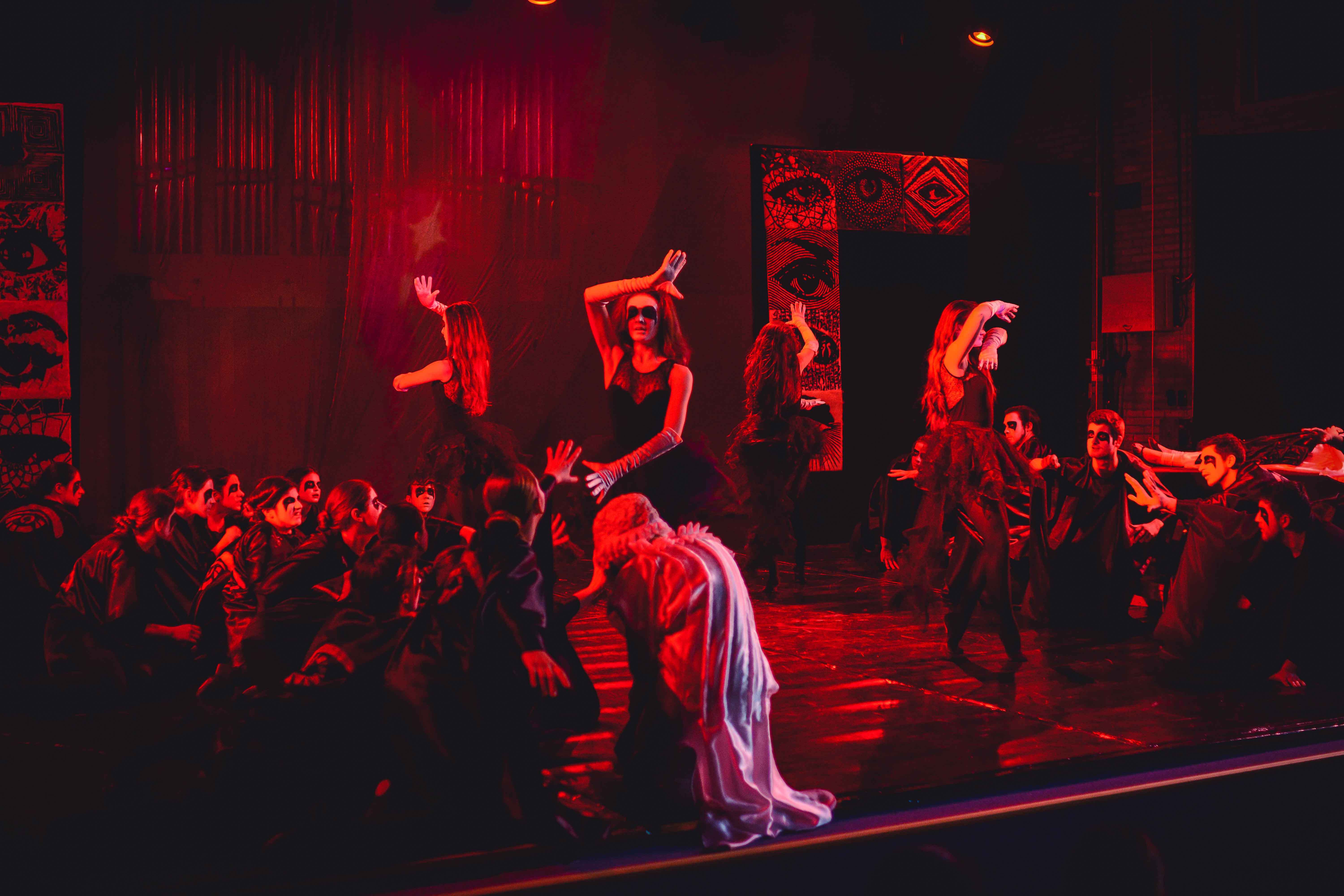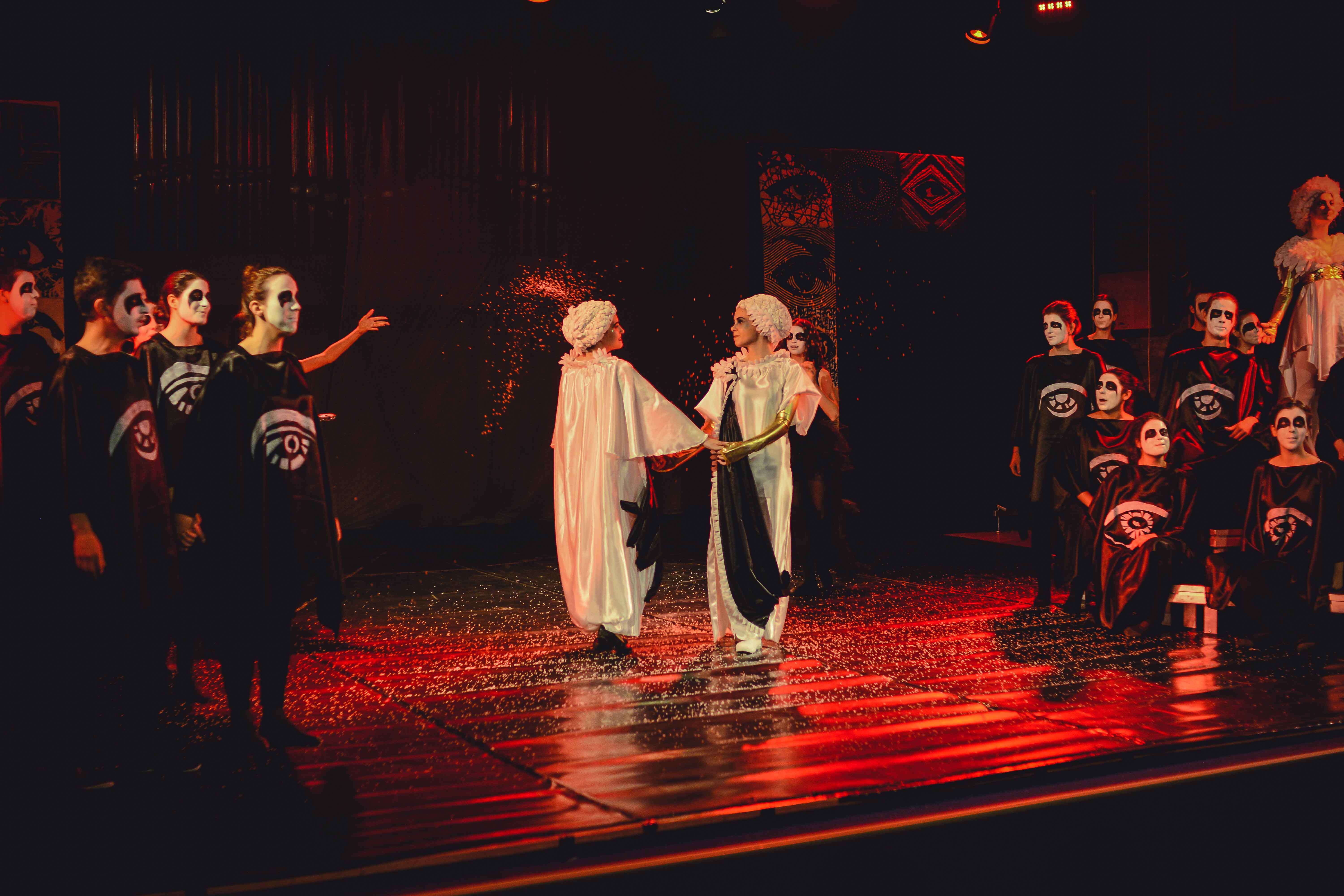
Main Hall
distribution
Artistic direction: Mihaela Bogdan
Scenography: Valentin Codoiu
Choreography adaptation: Marius Toda
Stage and backstage asistance: Dan Lupea
Cast:
Orpheus: Florin Pop
Euridice: Lucia Bulucz
Pluto, Aristeus: Sorin Lupu
Jupiter: Cristian Hodrea
The Public Opinion: Iulia Merca
Diana: Oana Trîmbițaș (debut)
Venus: Ștefania Barz
Cupid: Alexandra Topan (debut)
Minerva: Lorena Puican (debut)
Junona: Daniela Tricu
Mercury: Eusebiu Huțan (debut)
Morpheus: Cristina Tureanu (debut)
John Styx: Tudor Bărbos (debut)
Violonist: Rareș Munthiu
description
show category: operetta
Operetta in 2 acts (4 scenes) on a libretto by Hector Crémieux
Recommended age: 10+
Considered to be an essential turning point in the history of operetta, Orphée aux enfers is composer Jacques Offenbach’s most significant and renowned work, substantially contributing, in the mid 19th century, at this genre’s enrichment, by inserting comedy and persiflage in his work, to reflect the society’s problematic matters.
Offenbach and libretist Ludovic Halévy have metamorphosed one of the best knows Greek legends – the myth of Orpheus – which tells the story of this brilliant musician who, deeply pained by this wife Euridice’s death, tries to save her from the Underworld. This subject – also approached by composers such as Jacopo Peri (Euridice, 1600), Claudio Monteverdi (L’Orfeo, 1607), Christoph Willibald Gluck (Orfeo ed Euridice, 1762), Joseph Haydn (L’anima del filosofo, ossia Orfeo ed Euridice, 1791) – is offered a fresh, yet ridiculous view in Jacques Offenbach’s piece. Just as in the Greek myth, the operetta’s heroine is fatally bitten by a snake, but, instead of dying she decided to descend into the Inferno aside Pulto – master of the Underworld, and her secret lover. The plot builds up according to Orpheus’ trials to win her back, convinced to do so by the Public Opinion.
Orphée aux enfers is Offenbach’s first work and, although it has its origins in the Greek mythology, the German-French composer pictures them as promiscuous partiers in the 19th Century’s Paris; the operetta’s librettist thus represents a subtle yet harsh commentary to the decade’s society, as well as the easy manners and immorality of the superior class and aristocracy.
J. Offenbach’s operetta has maintained its evergreen notoriety and charm due to its captivating melodies, radiant dialogues, and, nevertheless, thanks to the Galop Infernal, internationally knows as the famous French Cancan, a fragment which, on the date of the premiere, October 21, 1858, at Théâtre des Bouffes-Parisiens – although it came as a shock to critics because of its ironical approach to Gluck’s highly acclaimed opera, as well as because of the libretto’s deviation from Ancient Greek ‘s perfection – became a Parisian musical symbol, being presented 228 times, consecutively, after its premiere.
The performance is presented in French, with Romanian spoken interventions; it has one break, and ends around 9:30 p.m.
photo gallery
Georgiana Strîmbu și studenții anului III - Universitatea de Artă și Design Cluj-Napoca




